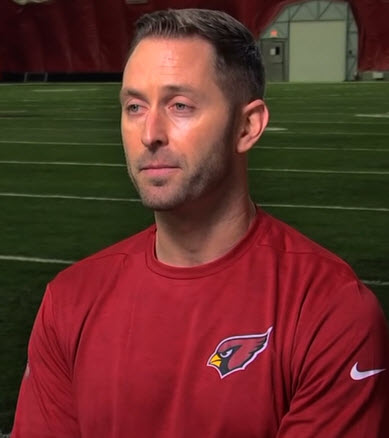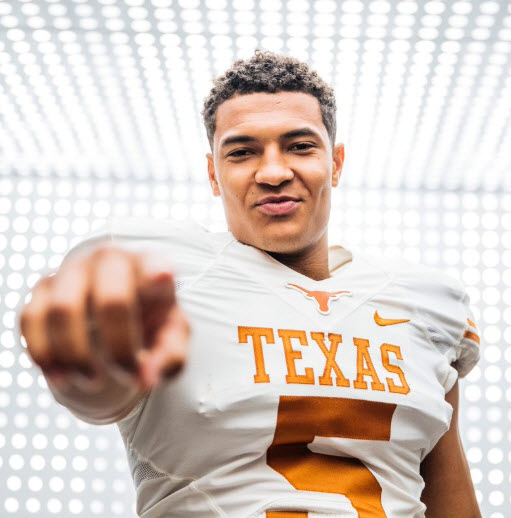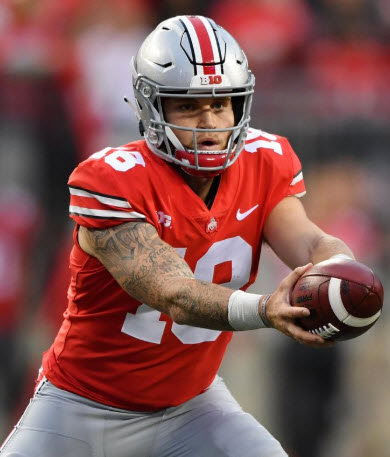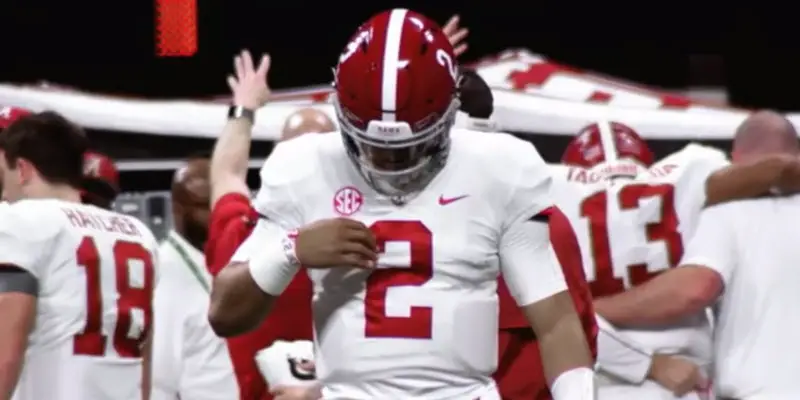We know that Albert Einstein’s theory regarding black holes’ existence in the universe was indeed correct. The Great One’s theory regarding wormholes in the universe being able to beam from here to there instantaneously over unimaginable distances, on the other hand, has yet to be proven. However, this theory, at least on a much more modified college football (CFB) scale, looks to be spot on.
Welcome to the Transfer Portal!
Here, a college football player on scholarship, for any or no reason, can beam himself to a school that, at least in his mind, presents a better opportunity to eventually pluck the big bucks from the NFL tree. Once in the Portal, the player can travel to the destination of his dreams without his existing school having any say in the matter.
There’s only one downside: upon entering the Portal, the school a player is attempting to transfer from can pull his scholarship. And the player, except for circumstances the NCAA deems worthy, must sit out the following season.
Coaches Can Leave. Why Can’t Players?

Kingsbury told ESPN that the opportunity to coach the Cardinals was, “too good to pass up.”
Are the kids who use the Portal taking it “out of Dodge” as quitters and cowards? Are they the kind of folks who see “me” in the spelling of “team” and nothing else? Or are they simply exercising their rights as Americans, taking the path that they view as the one most likely to lead to fulfillment and reward?
Indentured servitude is contrary to the laws of the USA. Yes, one can enter into an employment agreement that includes a “Non-Compete Clause,” which restricts future employment. But such an agreement is bargained for between adults and is only enforced if found to be reasonable in both the limiting of future employers and the geographic scope.
It certainly appears today that a Letter of Intent (LOI) signed by a student, which binds him to a particular school and prevents him from playing for a season if he decides to transfer out, is far more restrictive than the contracts between adult coaches and their respective employers.
Yes, many of these coaches’ agreements have liquidated damage clauses — an amount that must be paid to “School A” should a coach move on to “School B.” But any attempt to limit or prevent a coach from moving on is, of course, unenforceable.
For example, Kliff Kingsbury’s move from offensive coordinator at USC to head coach of the Arizona Cardinals will not require him to sit out any games in the 2019 NFL season.
Some Cases to Consider

McCoy left shortly after Kingsbury departed.
Will the same hold true for Bru McCoy, an incoming player who signed a LOI with USC, enrolled and spent ten days on campus before using the Portal to flip to Texas? (It should be noted that USC graciously released McCoy from his LOI. Whether he plays next season for the Longhorns is entirely up to the NCAA.)
McCoy argues that because coach Kingsbury departed for the NFL before the newly signed recruit participated in a single football-related event, the school should give him the right to play ball on the Forty Acres in 2019. This case will be a major test of the Portal’s power, and will be decided by the always player-friendly (right?) NCAA.
Another example is that of Manny Diaz, who spent three weeks as the head coach of Temple before reversing course and returning to Miami. Except for a few hurt feelings in Philly, who can possibly blame Diaz for stepping up to a job in the ACC from one in the AAC, and returning to his hometown, where his dad was once mayor?
But what about Tate Martell?

Martell is still waiting to hear whether he will be immediately eligible.
The Ohio State quarterback (QB) from Las Vegas entered the Portal when the Buckeyes took in QB Justin Fields, who claims to have entered the Portal in order to flee from a hostile racial environment in Athens, Georgia.
But if the school is as divisive as Fields suggests, why is his sister still enrolled in the school as a member of the softball team? Clearly Fields’ situation hasn’t deterred many top-drawer African American high school football players from signing on to play with coach Kirby Smart. Can you say, “Bogus?”
Martell’s argument is similar to McCoy’s: “My head coach Urban Meyer was free to leave, why not me?” And by the way, coach Diaz is not going to have to sit out any games next season. In reality, it is clear that both Fields and Martell entered the Portal because they did not want to compete — Martell vs. Fields and Fields vs. Georgia’s accomplished QB Jake Fromm.
In fact, Fromm’s quality of play created a CFB “Game of Quarterback Thrones,” sending Jacob Eason back home to Washington, Fields to Columbus and Martell to Miami. I’ll be Dawg gone!
Is the Portal a Good Thing?
Listen, the Portal is both understandable and all good. Sure, we can beef that these kids are chicken spit and afraid of competition. But as a competitor, I too would want to see the field and not ride the bench. And how many of us know what goes into the seduction of these kids in the first place? What promises were made that, at least in the young man’s opinion, have not been realized?
I believe that every CFB kid on scholarship should have one free pass. At 72 years of age, I am still making mistakes. Why should a bad choice be held against a 17- or 18-year-old?
If it complicates the life of multi-millionaire coaches … boo-hoo. What say you?
Jon Joseph
Georgetown, Texas Top Photo From Video
 Bob Rodes, the FishDuck.com Volunteer editor for this article, is an IT analyst, software developer and amateur classical pianist in Manchester, Tennessee.Oregon.
Bob Rodes, the FishDuck.com Volunteer editor for this article, is an IT analyst, software developer and amateur classical pianist in Manchester, Tennessee.Oregon.

Jon Joseph grew up in Boston, Massachusetts but has been blessed to have lived long enough in the west to have exorcised all east coast bias. He played football in college and has passionately followed the game for seven decades. A retired corporate attorney Jon has lectured across the country and published numerous articles on banking and gaming law. Now a resident of Aiken South Carolina, Jon follows college football across the nation with a focus on the Conference of Champions and the Ducks.

